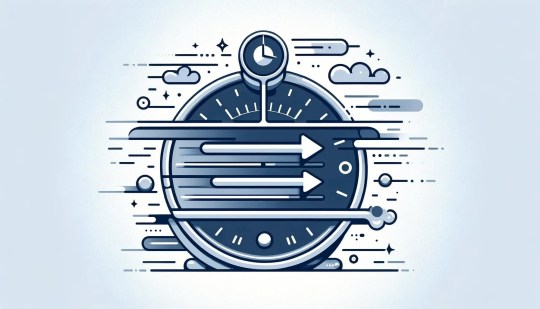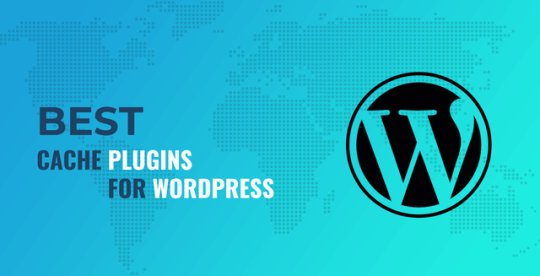#wordpress cache plugin
Explore tagged Tumblr posts
Text
0 notes
Text
LiteSpeed Cache vs WP Rocket - The Ultimate Showdown 2025
When it comes to speeding up WordPress, two names often pop up in conversations: WP Rocket and LiteSpeed Cache. Both are powerful tools designed to make your site load fast, but they go about it in different ways. As someone who has spent a good deal of time diving deep into WordPress optimization, I’ve seen firsthand how these plugins can transform a sluggish site into a responsive, engaging…
0 notes
Text

Nejrychlejší #Wordpress?
toho dosáhnete 2 různými způsoby. Který si vyberete v podstatě záleží jen na...
1 note
·
View note
Text
Tips Mempercepat Loading Website untuk Meningkatkan Peringkat di Google
Sudah tau kan? Apa akibatnya jika halaman website anda lambat saat diakses? situs web yang lambat bisa sangat menjengkelkan! Di dunia digital yang serba cepat ini, kecepatan adalah kunci untuk memberikan pengalaman pengguna yang optimal. Situs web yang memuat lambat dapat berdampak negatif, seperti: Pengalaman Pengguna Buruk: Pengguna cenderung meninggalkan halaman jika memerlukan waktu lebih…
#AMP untuk mobile#caching browser#cara mempercepat website#cara optimasi website#CDN untuk website#Google PageSpeed Insights#hosting berkualitas#kecepatan website#loading website cepat#loading website lambat#mempercepat website WordPress#meningkatkan konversi website#meningkatkan peringkat Google#minifikasi file website#optimasi CSS dan JavaScript#optimasi gambar#pengalaman pengguna website#performa website#plugin WordPress#SEO terbaik#SEO website#tips optimasi website#tools analitik website
0 notes
Text
How to Improve Your Website Speed with WordPress

Introduction
If your WordPress site feels sluggish, speeding it up is key to boosting visitor satisfaction, SEO, and conversions. Thankfully, there are simple ways to improve speed without much hassle. Let’s explore some easy tips to get your site running faster. For more personalized solutions, consider Custom WordPress development services.
1. Choose a Fast Hosting Provider
The first step to a faster website is selecting a reliable hosting provider. Opt for hosting solutions specifically optimized for WordPress. Managed WordPress hosting is an excellent option since it is tailored to the platform's needs, ensuring optimal performance and automatic updates.
Recommendations:
Managed WordPress Hosting: Offers automatic updates, caching, and server-level optimizations.
VPS or Dedicated Hosting: Suitable for websites with higher traffic for better speed and reliability.
2. Use a Lightweight Theme
Heavy themes can slow down your WordPress site. Choose a lightweight and fast theme optimized for performance. Themes like Astra, GeneratePress, or the default WordPress theme are excellent options.
Tips:
Avoid themes with excessive features or built-in plugins.
Consider using a custom WordPress development service to create a lightweight, custom theme tailored to your specific needs.
3. Leverage Caching Plugins
Caching plugins create static versions of your site content, allowing for faster loading. Some popular WordPress caching plugins are WP Rocket, W3 Total Cache, and WP Super Cache. These plugins can help reduce server load and improve website speed.
What to Look for in Caching Plugins:
Browser Caching: Caches static resources in visitors’ browsers for faster subsequent loads.
Page Caching: Reduces server processing time by serving static content.
Minification: Compresses HTML, CSS, and JavaScript files for faster delivery.
4. Optimize Images
Large, unoptimized images can significantly slow down your site. Use an image optimization plugin like Smush or ShortPixel to compress and resize images automatically.
Best Practices:
Use the correct image format (JPEG for photographs, PNG for graphics).
Consider lazy loading images to defer loading them until they are visible on the screen.
5. Minimize JavaScript and CSS Files
Too many scripts can slow down your site. Use plugins like Autoptimize or WP Rocket to minimize and combine your JavaScript and CSS files. This reduces the number of requests your website makes, leading to faster loading times.
6. Enable GZIP Compression
GZIP compression reduces the size of files sent from your server to the user’s browser, improving the loading speed. You can enable GZIP compression using plugins like WP Rocket or W3 Total Cache.
7. Use a Content Delivery Network (CDN)
A CDN distributes your website's content across multiple servers worldwide. It ensures that visitors are served content from the server closest to them, reducing latency and improving speed.
Popular CDN Services:
Cloudflare
KeyCDN
StackPath
8. Reduce HTTP Requests
Every element on a webpage (images, scripts, stylesheets) requires an HTTP request. Reducing the number of these requests can significantly improve your website speed.
How to Reduce HTTP Requests:
Combine CSS and JavaScript files.
Limit the number of plugins and external resources.
Use inline SVGs instead of loading icon fonts.
9. Regularly Update WordPress, Themes, and Plugins
Outdated software can slow down your site and introduce security risks. Regular updates ensure that you benefit from the latest performance improvements.
10. Consider Using a Custom Solution
If you've implemented all the above strategies and your website speed is still lagging, you may need a more tailored approach. A WordPress website development service can assess your site and provide custom solutions, such as optimizing your database, creating a bespoke theme, or developing performance-focused plugins.
Conclusion
Improving your website speed with WordPress involves a combination of optimizing hosting, themes, plugins, and content. Whether you use off-the-shelf solutions or engage in WordPress development solutions, enhancing site performance will pay off through better user experience and SEO.
By following these steps, you can ensure a more streamlined, fast, and responsive WordPress site that delights your visitors and search engines alike.
#WordPress Speed Optimization#Website Performance#WordPress Development#Custom WordPress Solutions#Web Hosting Tips#WordPress Plugins#Website SEO#Page Load Time#Image Optimization#Content Delivery Network (CDN)#WordPress Caching#WordPress Tips
0 notes
Link
0 notes
Text
WordPress Performance: Caching Navigation Menus
Background In the before time, WordPress developers used to build themes (and plugins?) using PHP. When we wanted to add a user generated navigation menu to sites, we had to use a function called wp_nav_menu(). Of course, now that we’re in the future, we don’t need to worry about such things. But if you’re still using PHP to build WordPress sites, and still using wp_nav_menu() you might not…

View On WordPress
#caching#navigation menus#Performance Optimization#php#plugins#themes#Web Development#website speed#WordPress#wp_nav_menu
0 notes
Text
Unveiling the Top Cache Plugins for WordPress: Boost Your Website's Speed!

In the dynamic world of website optimization, caching plugins stand as the unsung heroes, enhancing site speed and user experience. WordPress, being the most popular content management system, offers a plethora of cache plugins, each claiming to be the best solution for your site's performance. But which cache plugin is truly the best in WordPress? Let's delve into the realm of caching plugins to uncover the answer.
Understanding the Significance of Cache Plugins
Before we delve into the specifics, let's grasp the importance of cache plugins. In essence, these plugins work by storing static copies of your website's pages, allowing for quicker retrieval when a user requests access. By doing so, they significantly reduce server load and enhance page loading times. This results in a smoother user experience and improved search engine rankings, as speed is a crucial factor in website performance.
Exploring the Leading Cache Plugins for WordPress
WP Rocket: Renowned for its simplicity and effectiveness, WP Rocket tops the list of cache plugins for WordPress. Its intuitive interface and powerful caching features make it a favorite among novice users and seasoned developers alike. With options for page caching, browser caching, and minification, WP Rocket ensures lightning-fast loading times without compromising functionality.
W3 Total Cache: As one of the most popular free cache plugins available, W3 Total Cache offers a comprehensive set of features for optimizing website performance. From CDN integration to database caching, this plugin covers all bases when it comes to caching. While it may seem daunting to configure for beginners, the extensive documentation and community support make the learning curve manageable.
WP Super Cache: Developed by Automattic, the team behind WordPress itself, WP Super Cache is a reliable choice for website caching. Its simple setup process and effective caching mechanisms make it suitable for websites of all sizes. With options for mod_rewrite caching and legacy caching, WP Super Cache ensures optimal performance without overwhelming users with unnecessary complexities.
Conclusion: Choosing the Right Cache Plugin for Your WordPress Website
In the realm of cache plugins for WordPress, the options can seem overwhelming. However, by understanding the specific needs of your website and evaluating the features offered by each plugin, you can make an informed decision. Whether you prioritize ease of use, advanced customization options, or compatibility with other plugins, there's a cache plugin out there that's perfect for you.
Boost your website's speed and optimize user experience by implementing the best cache plugin for WordPress today. With WP Rocket, W3 Total Cache, or WP Super Cache, you can take your website performance to new heights and leave your competitors in the dust.
Best Caching Plugins For WordPress
0 notes
Text
Best Cache WordPress Plugin: Turbocharge Your Website's Speed

Introduction
In the fast-paced digital world, where users expect websites to load instantly, the speed of your WordPress site can make or break your online presence. Slow-loading websites not only frustrate visitors but also rank lower on search engine results pages (SERPs). To combat this, savvy website owners turn to cache WordPress plugins to optimize their site's performance. In this article, we'll explore the world of caching and present you with the best cache WordPress plugins available. Let's dive in!
Why Website Speed Matters
Website speed is a critical factor that affects user experience and SEO rankings. A fast-loading website keeps users engaged and satisfied, reducing bounce rates and increasing conversion rates. Additionally, search engines like Google consider page speed when ranking websites. To achieve blazing fast load times, you need a reliable cache WordPress plugin.
Get Any Cache WordPress Plugin for Free
What Is Caching?
Caching is a process that stores static versions of your web pages, reducing the need for the server to generate the page each time a user requests it. Instead, the cached version is served, dramatically speeding up load times. Caching plugins are instrumental in implementing this process seamlessly.
The Top Cache WordPress Plugins
Let's take a closer look at the cream of the crop when it comes to cache WordPress plugins:
1. WP Super Cache
WP Super Cache is a popular choice among WordPress users due to its simplicity and effectiveness. It generates static HTML files from your dynamic WordPress site and serves them to users, significantly reducing server load and improving speed.
2. W3 Total Cache
W3 Total Cache is a feature-rich plugin that offers a wide range of caching options. It's suitable for both beginners and advanced users and can drastically enhance your website's performance.
3. WP Rocket
WP Rocket is a premium cache plugin known for its user-friendly interface and exceptional performance. It includes features like lazy loading, database optimization, and CDN integration to ensure your website is as fast as possible.
4. LiteSpeed Cache
If your web hosting provider uses LiteSpeed servers, LiteSpeed Cache is a must-have. It's designed to work seamlessly with LiteSpeed servers, delivering outstanding performance gains.
5. WP Fastest Cache
As the name suggests, WP Fastest Cache focuses on delivering speed. With a straightforward setup and excellent caching capabilities, it's a reliable choice for optimizing your WordPress site.
How to Choose the Right Cache Plugin
Selecting the best cache WordPress plugin for your website depends on several factors, including your technical expertise, hosting environment, and specific needs. Here are some tips to help you make the right choice:
Consider Your Hosting Environment
Different cache plugins may perform better with specific hosting environments. Research compatibility with your hosting provider to ensure optimal results.
Analyze Your Website's Needs
Evaluate your website's requirements. Do you need advanced features, or is a simple caching solution sufficient? Choose a plugin that aligns with your needs.
Check for Regular Updates
Ensure that the cache plugin you select receives regular updates and support. WordPress evolves, and your plugin should too.
Conclusion
In the world of WordPress, website speed is paramount. To stay competitive and provide an exceptional user experience, investing in a top-tier cache WordPress plugin is a no-brainer. Whether you opt for the simplicity of WP Super Cache or the feature-rich W3 Total Cache, your website's performance will thank you.
Now, take action and turbocharge your website's speed with the best cache WordPress plugin. Your users and search engine rankings will appreciate it.
FAQs
1. What is caching, and how does it work?
Caching is a process that stores static versions of web pages to reduce server load and speed up website loading times. Caching plugins automate this process for WordPress websites.
2. Is WP Rocket worth the premium price?
Yes, WP Rocket's premium features, such as lazy loading and database optimization, can significantly improve your website's speed and overall performance, making it a worthwhile investment.
3. Can I use caching plugins with shared hosting?
Yes, most caching plugins are compatible with shared hosting environments. However, it's essential to choose a plugin that suits your specific hosting provider and performance requirements.
4. Are there any free caching plugins available?
Yes, WP Super Cache and WP Fastest Cache offer free versions with robust caching capabilities. They are excellent choices for budget-conscious website owners.
5. How often should I clear my cache?
The frequency of cache clearing depends on your website's update frequency. If you make regular updates, consider configuring your caching plugin to clear the cache automatically at set intervals to ensure visitors always see the latest content.
Get Any Cache WordPress Plugin for Free
0 notes
Text
0 notes
Text
How to Speed Up Your WordPress Site for Better Rankings
A fast-loading website is essential for better SEO, improved user experience, and higher conversions. If your WordPress site is slow, you’re likely losing both visitors and ranking opportunities. Here’s how you can fix that.
Choose the Right Hosting
Your hosting provider sets the foundation for your website’s speed. Shared hosting may be affordable, but it often leads to slow performance. Instead, go for managed WordPress hosting or cloud-based options. Many professional website development services include high-performance hosting setup as part of their package.
Use a Lightweight Theme
A bulky, feature-heavy theme can slow your site down significantly. Switch to a lightweight and optimized theme like Astra, Neve, or GeneratePress to improve load time without compromising design.
Optimize Images
Images are often the biggest contributors to page size. Compress them using tools like ShortPixel or Smush, and use next-gen formats like WebP for faster delivery.
Install a Caching Plugin
Caching helps by storing static versions of your site, reducing the server load. Plugins like WP Rocket or W3 Total Cache can make a noticeable difference in performance.
Minify and Combine Files
Reduce the size of your CSS, JS, and HTML files by minifying them. This removes unnecessary characters and spaces to speed up load time. Tools like Autoptimize make this easy.
Use a CDN
A Content Delivery Network (CDN) distributes your content across multiple servers globally, ensuring faster access no matter where your visitors are located.
Clean Up Unused Plugins and Database
Too many plugins can slow your site and affect performance. Remove what you don’t use and regularly clean your database using WP-Optimize or similar tools.
Final Thoughts
Speed is a major factor in how users and search engines interact with your site. If you’re unsure where to start, partnering with expert website development services can help you optimize every technical aspect for maximum performance and SEO benefits.
Read more -https://www.janbaskdigitaldesign.com/wordpress-website-design-and-development
2 notes
·
View notes
Text
WordPress Mastery: A Complete Guide for Novices and Experts
Welcome back to our blog! We're delving further into WordPress today, the industry-leading content management system that has revolutionized website development and administration. This tutorial will give you the fundamental knowledge, skills, and insights you need to become an expert WordPress user, regardless of whether you're just getting started or want to improve your current website.
What Is Unique About WordPress? WordPress is a complete content management system (CMS) that supports a wide variety of websites, from huge business sites to personal blogs. The following are some salient characteristics that distinguish WordPress:
1. Open Source & Free WordPress is open-source software, meaning it is free to use and modify. This accessibility has resulted in a thriving community of developers and users who contribute to its ongoing enhancement. 2. Flexibility and Scalability. Whether you run a small blog or a huge e-commerce site, WordPress can scale to meet your demands. You can begin simple and extend your site as your business expands, adding new features and functionalities along the way. 3. Extensive plugin ecosystem. With over 58,000 plugins accessible, you can simply add new features to your website without requiring any technical skills. From SEO tools to social network integrations, there's a plugin for practically every requirement.
4. Mobile responsiveness. Most WordPress themes are built to be mobile-responsive, so your site will look amazing on any device. This is especially important in today's mobile-first environment, when smartphones and tablets account for a considerable amount of web traffic. To set up your WordPress site, start by selecting a hosting provider.
Choosing a reputable hosting company is critical for your website's performance. Look for WordPress-specific providers like Bluehost, SiteGround, or Kinsta, which provide optimized conditions for WordPress blogs.
Step 2: Installing WordPressYou can install WordPress after you've acquired your domain name and hosting. Most hosting companies include a one-click installation option, making it simple to get started. Step 3: Choose a theme Your site's design and feel are determined by its theme. To choose a design that fits your brand, look through the WordPress theme repository or premium theme marketplaces like as ThemeForest. Step 4: Customise Your Website After you've decided on a theme, tweak it to meet your requirements. To change the colors, fonts, and layouts, use the WordPress Customizer. You may also add widgets to your sidebar or footer to extend its usefulness.
Step 5: Add the necessary plugins. Install the following important plugins to improve the essential plugins:
Elementor: A powerful page builder for creating custom layouts.
Akismet: A spam protection plugin to keep your comments section clean.
WP Super Cache: A caching plugin to improve your site’s loading speed.
UpdraftPlus: For easy backups of your site. Plan Your Content Create a content calendar to help you arrange your themes and posting schedule. Headings and Subheadings: To increase readability and SEO, divide your text into sections with headings (H1, H2, H3). Conclusion WordPress is a powerful platform that can help you construct a beautiful and functioning website, regardless of your technical knowledge. Understanding its features and capabilities will allow you to maximize the platform's potential for achieving your online objectives. Whether you're a blogger, a business owner, or a creative professional, WordPress provides the freedom and resources you need to thrive. Stay tuned for more tips, tutorials, and insights in future postings, and happy WordPressing!

2 notes
·
View notes
Text
Top WordPress Plugins to Supercharge Your Website in 2024

Building and maintaining a WordPress site is both exciting and challenging. While the platform provides a robust foundation, the true power of WordPress lies in its plugins. From enhancing site functionality to improving user experience, WordPress plugins are indispensable tools for developers, businesses, and bloggers alike. In this blog, we’ll explore the best WordPress plugins that can transform your website into a highly functional, user-friendly, and SEO-optimized powerhouse.
What Are WordPress Plugins?
WordPress plugins are software add-ons designed to extend the functionality of your WordPress site. Whether you need to improve site speed, enhance SEO, secure your website, or add unique design features, there’s likely a plugin for that. Plugins allow both beginners and advanced users to customize their sites without coding expertise.
With over 60,000 plugins available on the WordPress Plugin Directory alone, the options can feel overwhelming. Choosing the right plugins for your website’s goals is critical for success. Below, we’ve rounded up some of the most essential WordPress plugins to consider.
Must-Have WordPress Plugins for Every Website
1. Yoast SEO
SEO is crucial for driving organic traffic to your site, and Yoast SEO is one of the best tools for optimizing your content. This plugin provides on-page optimization tips, readability analysis, and technical SEO tools to help your site rank higher on search engines.
2. Elementor
Looking to build a visually stunning website without hiring a designer? Elementor is a drag-and-drop page builder that makes designing websites easy. Its intuitive interface and vast array of widgets allow you to create professional-looking pages in minutes.
3. WPForms
For websites that rely on user interaction, a contact form is a must-have feature. WPForms allows you to create customizable, mobile-responsive forms effortlessly. Whether it’s contact forms, surveys, or payment forms, this plugin has you covered.
4. WooCommerce
If you’re running an online store, WooCommerce is the go-to plugin. It transforms your WordPress site into a fully functional e-commerce platform, complete with features for product listings, payment gateways, and inventory management.
5. Akismet Anti-Spam
Spam comments can clutter your website and ruin user experience. Akismet Anti-Spam automatically filters out spam comments, keeping your site clean and professional.
6. Jetpack
Created by Automattic, the team behind WordPress, Jetpack is a multipurpose plugin offering features like performance optimization, security, site analytics, and social media integration.
7. Rank Math
Another excellent SEO plugin, Rank Math provides advanced features like schema integration, keyword tracking, and detailed analytics. It’s an excellent alternative to Yoast SEO for more advanced users.
8. UpdraftPlus
Backup and restoration are critical for any website. UpdraftPlus allows you to schedule automatic backups and store them securely on cloud services like Google Drive or Dropbox.
9. Smush
Site speed plays a major role in user experience and search engine rankings. Smush compresses images without compromising quality, helping your site load faster.
10. MonsterInsights
Understanding how visitors interact with your site is essential. MonsterInsights integrates Google Analytics directly into your WordPress dashboard, offering real-time insights into traffic, user behavior, and more.
11. W3 Total Cache
Slow-loading websites lose visitors and revenue. W3 Total Cache improves website performance by caching static files and optimizing server resources.
12. Sucuri Security
Cybersecurity is non-negotiable in today’s digital landscape. Sucuri Security offers malware scanning, firewall protection, and blacklist monitoring to keep your site secure.
13. Social Snap
Boost social media engagement with Social Snap, a powerful social sharing plugin. It offers customizable sharing buttons and in-depth analytics to track your social media performance.
14. Litespeed Cache
For websites hosted on LiteSpeed servers, LiteSpeed Cache is a high-performance optimization plugin that enhances speed and reduces server load.
15. TablePress
If your site needs to display complex data, TablePress is a lifesaver. It lets you create and manage tables without requiring any coding knowledge.
Why Use WordPress Plugins?
Enhanced Functionality: WordPress plugins extend the capabilities of your site, making it easier to achieve your goals.
Ease of Use: Many plugins are beginner-friendly and require no technical expertise.
Scalability: Whether you’re running a blog, an e-commerce store, or a portfolio, plugins grow with your needs.
Cost-Effective: Most plugins offer free versions with premium features, making them accessible for all budgets.
Tips for Choosing the Right WordPress Plugins
Identify Your Needs: Start by determining what features your site requires.
Check Reviews and Ratings: Plugins with high ratings and positive reviews are generally more reliable.
Update Frequency: Look for plugins that are updated regularly to ensure compatibility with the latest WordPress version.
Avoid Overloading: Too many plugins can slow down your site. Stick to essential ones.
Final Thoughts
WordPress plugins are the backbone of a successful website. By selecting the right ones, you can enhance your site’s functionality, user experience, and performance. Whether you’re aiming to boost your SEO, secure your site, or create stunning designs, there’s a plugin tailored for your needs.
Experiment with the plugins mentioned above and watch your WordPress site thrive. Remember to regularly review your plugin list and update them to ensure optimal performance.
4 notes
·
View notes
Text
LiteSpeed Cache Plugin Vulnerability Poses Significant Risk to WordPress Websites

Source: https://thehackernews.com/2024/10/litespeed-cache-plugin-vulnerability.html
More info: https://patchstack.com/articles/rare-case-of-privilege-escalation-patched-in-litespeed-cache-plugin/
4 notes
·
View notes